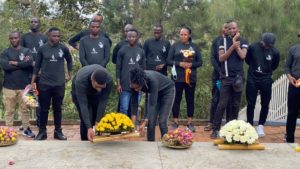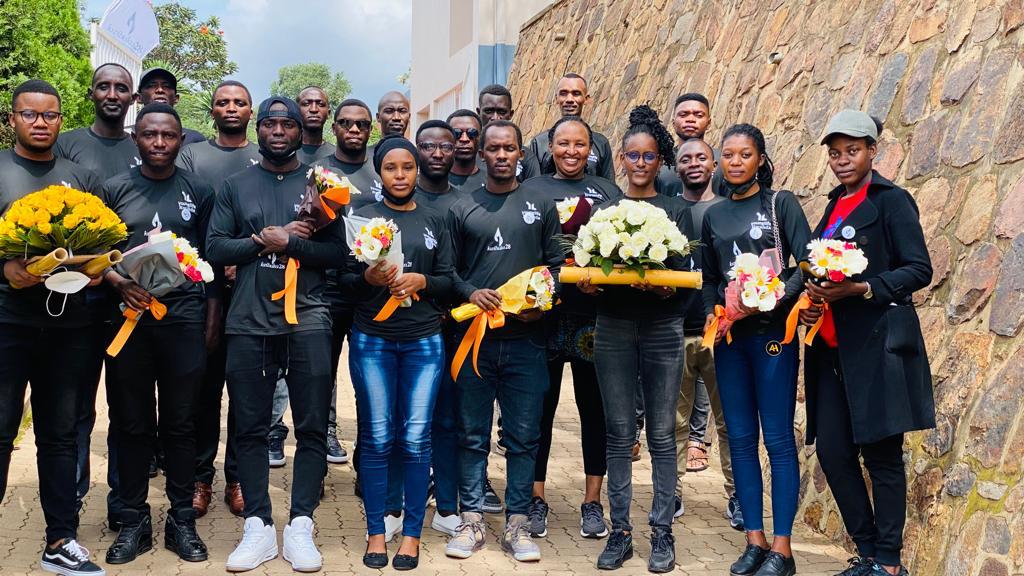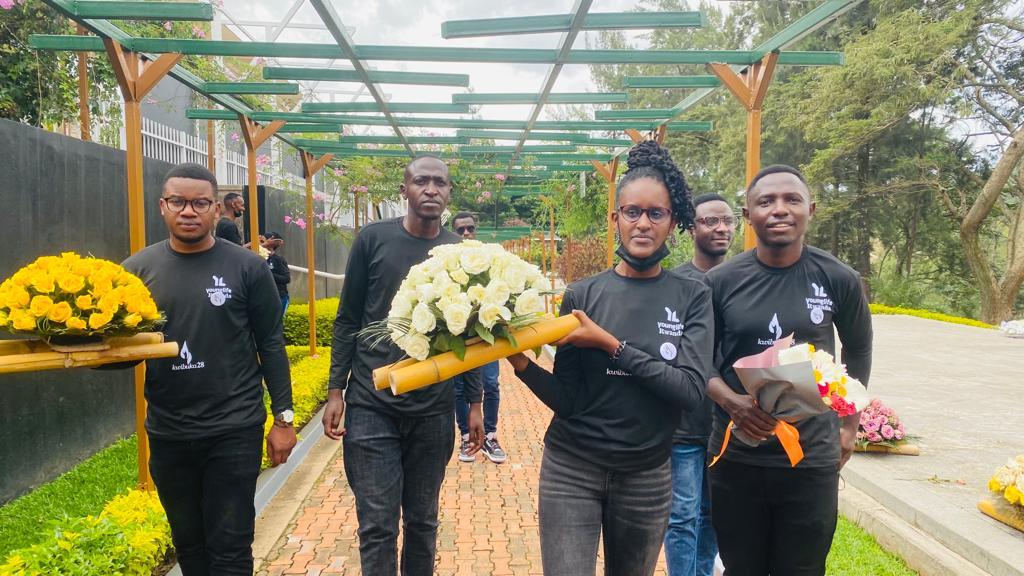Every year starting on April 7, Rwanda enters a 100-day period of remembrance to commemorate the 1994 genocide in which over one million Tutsis were brutally murdered over a period of 100 days. This season of commemoration is called Kwibuka, which means remembrance, and events are held to remember the atrocities committed, honor those who lost their lives and prevent such atrocities from happening again. Kwibuka is also a time to acknowledge the pain and harm that the Tutsis experienced in 1994. “This allows us to reflect on how we all have a personal responsibility to prevent discrimination and mass atrocity,” shared Cynthia Munezero, who serves as Young Life’s Logistics Coordinator in Rwanda.
For many Rwandans, Kwibuka is more than about simply remembering history, it is a personal time that carries many emotions. For Cynthia, this is a time for her to honor and remember her father who was killed by their neighbors when she was only a year old. Cynthia shared with us the Gospel’s impact on her life and journey to healing, even as she and her family continue to live with the trauma. She forgave those who murdered her father, “not because they have asked for it or even deserve it, but because the gospel gives her the power to forgive.”
“As a believer, I consider myself a very religious person as far as letting faith play into my decision making and how I look at the world on a daily basis.”
The power of the Gospel to bring reconciliation between God and humankind has helped Cynthia move forward with her life. Jesus has brought peace and hope into her life and allowed her to process and work through her personal trauma. She often refers to Psalm 147:3 as a source of encouragement and reminder that “He heals the brokenhearted and binds up their wounds.” (NIV).

As a nation, post-genocide Rwanda has adopted a posture of justice, peace, and reconciliation. The Young Life staff and DGL in Rwanda set aside May 3rd to remember the loved ones they lost during the genocide. They visited the Genocide memorial center, where Cynthia got to honor her father with her Young Life team by her side. They also spent time with Ntawiha, a Young Life leader whose parents survived the genocide. Like many survivors, the family still remains disadvantaged by the genocide 28 years later. The team put together financial resources to assist the family with food and rent as a way to live out the gospel in their lives.
“The church has helped people interpret the genocide in ways which make it possible for them to have hope. Religious values have emphasized that all Rwandans are created in God’s image, creating the important moral groundwork for reconciliation.”
This hope they have in Jesus is what drives Cynthia and a thousand volunteers and staff in Rwanda to continue sharing the gospel with teenagers. Young Life Rwanda believes that young people remain key actors that must be included in the reconciliation process for sustainable peace. They are committed to creating peace and unity through the gospel’s invitation to love our neighbors. In the spirit of Kwibuka, Young Life continues to teach teenagers that hatred and division go against God and the message of the gospel.
Young Life Rwanda hopes to build up a culture of unity and reconciliation in Rwanda by living the truth of the Gospel and showing others, especially teenagers, the peace and hope that Jesus Christ promises. Cynthia has a love for teenagers, “It hurts when a young person is discouraged, pessimist, and reasoning negatively.” Her desire for teenagers in Rwanda is “for them to know that God is loving, compassionate, and kind.”

We are passionate about bringing the transformational power of the Gospel to teens across Africa. You can learn more about how Young Life is doing this in Rwanda by visiting this page. Get in touch with us to find out the various ways to support Young Life staff in Rwanda.
Share
